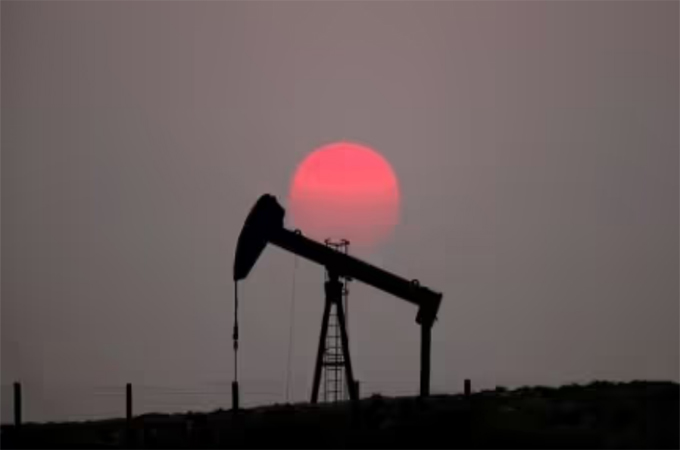
Oil prices fell after Russian Deputy Prime Minister Alexander Novak played down the prospect of further Opec+ production cuts at its meeting next week.
Brent crude futures was down 41 cents, or 0.5 per cent, to $77.95 a barrel at 0815 GMT. US West Texas Intermediate crude (WTI) fell 51 cents, or 0.7 per cent, to $73.83.
"I don't think that there will be any new steps, because just a month ago certain decisions were made regarding the voluntary reduction of oil production by some countries..." Novak was quoted as saying by Izvestia newspaper.
In the previous session, oil prices were supported by a warning from Saudi Arabia's energy minister that short-sellers betting oil prices will fall should "watch out" for pain.
Some investors took that as a signal that the Organisation of Petroleum Exporting Countries (Opec) and allies including Russia, together called Opec+, could consider further output cuts at a meeting on June 4.
"The obvious reading is that the Kingdom may either unilaterally cut oil production or orchestrate a wider Opec+ reduction ...thereby supporting prices and stinging speculators that are shorting oil," analysts at bank MUFG said.
Uncertainty over US debt also weighed on prices.
Some progress had been made but several issues remained unresolved in US debt ceiling negotiations, House Speaker Kevin McCarthy said on Thursday, as the deadline ticked closer to raise the federal government's $31.4 trillion borrowing limit or risk default.
Negotiators for Democratic President Joe Biden and top congressional Republican Kevin McCarthy reconvened Wednesday at the White House to try to close a deal.
Meanwhile, price declines were limited by an unexpected, massive fall in US crude oil inventories in the week to May 19 reported by the Energy Information Administration on Wednesday.
US crude inventories fell by 12.5 million barrels to 455.2 million barrels as imports declined. Analysts had expected an 800,000-barrel rise.
Gasoline inventories dropped by 2.1 million barrels in the week to 216.3 million barrels, the EIA said, while distillate stockpiles fell by 600,000 barrels to 105.7 million barrels. -Reuters





































































